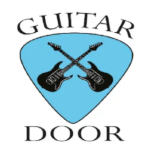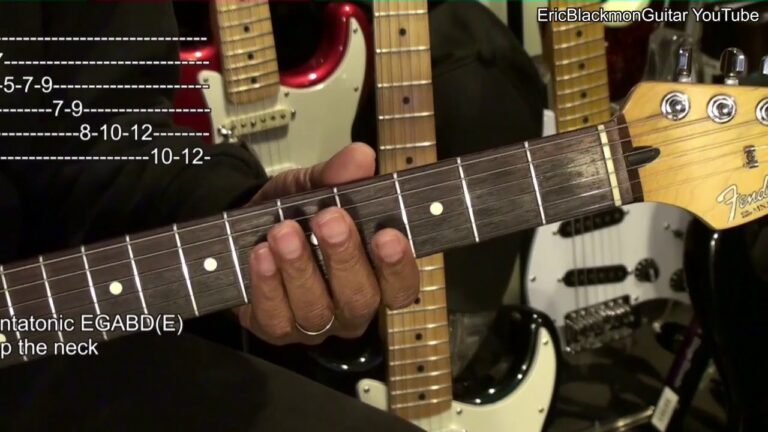Learning to play the guitar can be a rewarding journey. It’s a skill that can bring joy, relaxation, and even a sense of accomplishment.
But where do you start?
For many, the answer lies in self-teaching. This method lets you learn at your own pace, in your own time.
The key to successful self-teaching is finding the right resources. Among these, guitar books stand out as invaluable tools. They offer structured lessons, practical exercises, and comprehensive theory knowledge.
In this guide, we’ll explore the best guitar books for self teaching. Whether you’re a beginner or looking to enhance your skills, these books can help you learn guitar fast and effectively.
So, let’s dive in and discover the world of guitar books that can transform your self-study journey.
Understanding the Self-Teaching Journey
Embarking on a self-teaching journey involves excitement and challenges. The flexibility and independence it offers are its greatest strengths. You can learn at your pace, focusing on areas that interest you the most.
Yet, self-teaching demands a high level of discipline and commitment. Without an instructor to guide you, staying motivated can be a hurdle. Setting clear goals and consistent practice routines are crucial for progress.
The importance of the right learning material can’t be overstated. Books tailored for self-teaching offer structure and guidance. They serve as your silent teachers, providing insights and knowledge at every step.
Beyond just playing, self-teaching deepens your understanding of music. It encourages creativity and self-expression, as you learn to create your style. The journey also involves the excitement of solving puzzles and discovering hidden talents.
Resources like guitar theory books further enrich your learning. They help in grasping complex concepts in a simplified manner. These books bridge the gap, making the learning curve less steep.
Understanding your learning style is key to choosing the right resources. Some prefer detailed explanations, while others might enjoy visual aids and audio examples. This journey is personal, and recognizing what works best for you will guarantee the most rewarding experience.
Criteria for Choosing the Best Guitar Books
Selecting the right guitar book is essential for successful self-teaching. Different books cater to various learning needs and skill levels. Understanding these differences can help you choose wisely.
Consider the book’s teaching style. Some books offer step-by-step guides, while others focus on conceptual understanding. Choose the style that aligns with your learning preferences.
Content coverage is another vital criterion. A good book should cover fundamental techniques, theory, and exercises. This ensures a comprehensive learning experience.
Books with clear instructions and diagrams are particularly useful for beginners. Visual aids help in grasping complex finger placements and strumming patterns. Audio tracks are an added bonus, providing practical examples.
Here are some key points to consider:
- Teaching Style: Step-by-step vs. conceptual learning.
- Content Coverage: Techniques, theory, exercises.
- Instruction Clarity: Clear instructions and diagrams.
- Supplemental Materials: Audio tracks, online resources.
- Skill Level Target: Beginner, intermediate, or advanced.
- Author Skill: Qualifications and experience of the author.
Don’t ignore the author’s qualifications and experience. An experienced author often delivers more insightful and reliable content. Their books are usually more polished and nuanced.
Lastly, reviews and testimonials are valuable. They offer real-world insights into the effectiveness of the book. Trust the opinions of fellow learners to guide your decision.
Top Guitar Books for Beginners
Choosing the right beginner guitar book can make a huge difference in your learning journey. The best books show concepts clearly and build foundational skills effectively. They’ve helped countless novices transform into skilled players. Below are three highly recommended books for self-learners who are just starting their journey with the guitar.
“Hal Leonard Guitar Method” by Will Schmid & Greg Koch
The “Hal Leonard Guitar Method” is a quintessential guide for starters. It covers a range of basics, including music notation and simple chords. This book is structured to keep learners motivated and engaged.
One standout feature is the inclusion of play-along audio tracks. These tracks help you practice in real-time, enhancing your rhythm and timing skills. The clear instructions make complex techniques easy to understand.
“Guitar for Dummies” by Mark Phillips and Jon Chappell
“Guitar for Dummies” is a friendly, approachable guide for absolute beginners. Known for its straightforward language and humorous tone, it simplifies the learning process.
The book offers a robust foundation in chords, scales, and strumming patterns. Its practical tips and exercises guarantee consistent progress. The inclusion of bonus audio content helps reinforce learning.
“Teach Yourself to Play Guitar” by David M. Brewster
David M. Brewster’s “Teach Yourself to Play Guitar” is perfect for self-learners. It focuses on core concepts that form the backbone of guitar playing. The book is well-organized, guiding readers from simple to complex topics.
Illustrations and diagrams offer visual guidance for hand positions and chord shapes. It’s a no-nonsense approach, delivering results without overwhelming beginners. The pace allows for gradual improvement, making it ideal for self-study.
Essential Guitar Theory Books
Understanding guitar theory can significantly enhance your playing skills. Theory books break down music’s intricate details, ensuring you grasp the why and how of what you’re playing. They take your skills to new heights, enabling you to play more confidently.
For a self-taught guitarist, mastering theory is invaluable. It deepens your musical knowledge beyond mere chord changes. Investing in a guitar theory book is a step toward comprehensive musicianship.
Theory books explain scales, chords, and keys, demystifying complex concepts. They teach you how to apply these elements creatively across various musical genres. By understanding theory, you’ll find new dimensions in your playing and songwriting.
Theory books help you recognize patterns and structures in music. This understanding also aids in improvisation and composing your own melodies. Musicians often find that knowing theory boosts their capability to learn faster and more effectively.
Books focused on guitar theory are crucial for enhancing both technical skills and artistic expression. They serve as a guide to broadening your musical perspective and skill set.
“Fretboard Theory” by Desi Serna
“Fretboard Theory” by Desi Serna is a must-have for guitarists aiming to deepen their understanding of music. It simplifies the complexities of scales, chords, and modes. Serna breaks down each concept into relatable terms, making it accessible for all players.
This book includes insightful exercises that encourage hands-on practice. These exercises help you apply theoretical knowledge directly to your instrument. Its clear structure allows you to track your progress effectively.
“Fretboard Theory” also emphasizes real-world application, ensuring theory is grounded in practical use. This practical approach translates into better performance and creativity.
“Guitar Theory For Dummies” by Desi Serna
“Guitar Theory For Dummies” is another excellent resource from Desi Serna. It covers everything from basic chords to advanced musical concepts. This book is part of the renowned Dummies series, known for simplifying complex topics.
Serna’s book offers a thorough exploration of theory without overwhelming the reader. Its user-friendly format makes learning engaging and enjoyable. Interactive exercises and audio examples further enhance understanding.
For learners who want to bridge the gap between playing and comprehending music, this book is ideal. It fosters a deeper appreciation of music theory while enhancing guitar skills.
Books for Learning Guitar Fast
If you’re eager to learn guitar quickly, certain books focus on speed and efficiency. These resources are designed for learners who want to maximize their practice in minimal time. They emphasize developing skills swiftly without sacrificing quality.
One of the key elements of these books is structured exercises. They offer drills and routines to build your technique rapidly. This fast-paced approach helps to quickly enhance your dexterity and precision.
Books tailored for quick learning often include detailed practice schedules. A well-organized schedule can significantly boost your progress. They also feature tips for focused and efficient practice sessions.
An essential aspect of rapid learning is consistency. These books help instill a disciplined practice habit that leads to steady improvement. By following their guidance, you can expect substantial advances in a short period.
Overall, books for learning guitar fast are an excellent choice for those with limited practice time. They emphasize strategic practice to achieve noteworthy results.
“Guitar Aerobics” by Troy Nelson
“Guitar Aerobics” by Troy Nelson is a standout choice for fast learning. This book offers a unique approach with a 52-week training program. Each week focuses on specific techniques designed to sharpen skills quickly.
Nelson’s exercises are varied and challenging, covering a range of styles. This variety keeps practice engaging and enriching. You’ll find exercises that help build speed, control, and agility effectively.
“Guitar Aerobics” is praised for its systematic approach that balances intensity with progress. It’s perfect for guitarists who desire a structured plan for rapid skill advancement.
Integrating Books with Other Learning Tools
Books serve as an excellent foundation for self-study, but combining them with other tools can enhance your learning journey. By integrating digital resources, you can gain a more comprehensive understanding of guitar techniques and theory.
Online lessons offer visual demonstrations that complement the written instructions in books. Videos can clarify complex topics, making learning more intuitive. Apps and software can also provide interactive exercises that reinforce concepts learned from books.
Another powerful tool is the online community. Forums and social media groups allow you to share insights and seek advice. By leveraging these diverse resources, your self-teaching process becomes more dynamic and effective.
Practice Makes Perfect: Tips for Using Guitar Books Effectively
To fully benefit from guitar books, a structured practice routine is essential. Consistency and focus can significantly enhance your progression.
First, establish clear goals to guide your practice sessions. Knowing what you aim to achieve helps maintain motivation and track progress.
Consider the following tips to maximize your practice:
- Set aside dedicated practice time daily.
- Begin with a warm-up, such as finger exercises.
- Focus on small, specific sections of a book.
- Use a metronome to develop timing.
- Review previous lessons before starting new ones.
Incorporate these strategies to make the most of your learning. By following a disciplined approach, improvement will come naturally over time.
Genre-Specific Guitar Books
Exploring different genres can enrich your guitar skills and expand your musical repertoire. Focusing on genre-specific books offers specialized insights. Such books help you master the nuances and techniques unique to each style.
Each genre demands a distinct approach and playing style. By diving into dedicated resources, you hone genre-specific skills.
Let’s look at two great genre-specific guitar books. These selections cater to blues and classical enthusiasts. They provide foundational and advanced learning, depending on your level.
“The Blues Guitar Handbook” by Adam St. James
Adam St. James delivers a comprehensive guide for blues lovers. His book covers essential blues techniques. It offers insights into the genre’s rich history and emotive playing style.
The handbook is perfect for those wanting to immerse themselves in blues. It includes a variety of exercises and riffs.
Learn to bend notes and express emotion in your playing. This book is a must-have for aspiring blues guitarists seeking to refine their craft.
“Classical Guitar for Dummies” by Jon Chappell
If classical guitar is your passion, Jon Chappell’s book is an excellent choice. It introduces the classical guitar method with clear explanations. The book covers techniques and pieces from various classical periods.
“Classical Guitar for Dummies” caters to players wanting to explore classical music. Chappell’s approach simplifies complex concepts.
You will find exercises designed to improve finger positioning and reading sheet music. This makes it easier to play beautiful classical pieces confidently.
Conclusion: Strumming Towards Success
Embarking on your self-taught guitar journey is both exciting and rewarding. Choosing the right books is key to advancing quickly and effectively. These resources provide guidance tailored to your learning style and goals.
Self-teaching allows for flexibility in your musical exploration. With discipline and the right tools, you can master guitar at your own pace. The suggested books equip you with techniques, theory, and practice routines.
Your success lies in consistency and dedication. Regular practice with the right material leads to steady improvement. Remember, each strum brings you closer to becoming the guitarist you’ve always dreamed of being.





